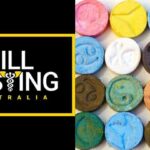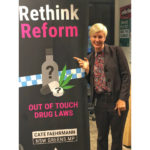Queensland Set to Introduce Pill Testing

Queensland has been criticised in recent years for its increasingly punitive approach to crime – policies such as suppressing divergent thinking and prosecuting young alleged offenders rather than seeking to embrace free thought, address the underlying causing of crime and divert troubled youths away from the criminal justice system.
But in a move that has been welcomed by many critics of the Sunshine State’s usual approach, the Queensland government has announced it will introduce pill testing across the state.
What is pill testing?
Pill testing, also known as ‘drug checking’ is a harm reduction technique whereby a small portion of a substance is taken to test and determine its contents.
The testing process can take as little as a few minutes, giving the person who intends to consume the substance the information required to make an informed decision – while also allowing those who undertake the testing an opportunity to counsel the user and provide them with information and guidance on the use of drugs.
The testing often occurs at dedication locations inside music festivals and other events, and police are encouraged to turn a blind eye to the possession of illicit substances near these areas rather than charge a person with drug possession.
Europe and the ACT lead the way, and Queensland takes note
The Australian Capital Territory has led the way with successful pill testing trials since 2019, which have proven to reduce the likelihood of those who would otherwise be exposed to the potentially lethal dangers of consuming illicit drugs laced with lethal fillers, and of vastly varying purity, deciding to dispose of them instead.
The success mirrors pill testing programs in many other nations, which have proven to save lives – especially of young attendees of events such as music festivals.
And the Queensland government has commendably taken note, announcing over the weekend that both fixed and mobile pill testing sites will roll out in Brisbane and at festivals around the state.
Mobile and fixed pill testing sites coming to Queensland
Health minister Yvette D’Ath says the move is part of the Queensland government’s Achieving Balance Plan, which is designed to reduce alcohol and drug-related harm and consider additional intervention strategies.
However, in making the announcement, the Queensland Government was quick to point out that it did not want to send the message that pill testing sites promote drug use, or the idea that drugs are safe.
The pill testing sites will enable drugs to be tested, allowing potential drug takers to see what chemicals make up the substance they’re considering ingesting, allowing them to make a more informed choice.
Most importantly, the pill testing process allows a person to connect with a health professional – someone they can speak to in a confidential and non-judgmental setting about the risks of taking drugs. This checkpoint also gives the user an opportunity to understand the dangerous substances in circulation and the potential effects of taking them, as well as get access to other resources, including help for addiction.
Pill testing has been available in some European countries for more than 20 years and over time have constantly resulted in significant harm reduction.
Keeping young people as safe as possible.
For many years various groups have called for pill testing in Australia, as young people continue to die from taking illicit substances.
The debate has raged on for many years about Australia’s punitive approach and the negative effect of this on both substance abusers as well as recreational users. The conversation has also questioned the effectiveness of drug detection dogs, and the strong police presence at music festivals.
There has also been much debate about the latter – that is, the use of drug detection dogs, and the police presence at music festivals, as well as the increasing use of invasive strip searches and the impact of this particular strategy which has severely impacted young people.
Some have died from ‘loading up’ – taking a lot of drugs before entering a festival so they don’t have to carry drugs with them, or ‘panic ingesting’ – swallowing all their drugs in one mouthful when they see authorities, in order to avoid being caught.
Other young people – whether they were carrying substances or not — have found themselves traumatised by strip searches, conducted by police who, in a number of cases, who were not ‘completely aware ‘of police policy and may not have followed it correctly.
Strip searches conducted by New South Wales Police were the subject of an inquiry by the Law Enforcement conduct Commission, which produced its final report in December 2020. The report identified a number of ambiguities surrounding police protocols regarding searches. Due to these purported uncertainties, the Commission, whose members include former police officers, suggested that the lawfulness of some of the searches is “debatable”.
A class action lawsuit has since been launched by a number of young people who were strip searched at Splendour in the Grass music festival in 2018.
It’s about time for pill testing in New South Wales
In 2019, NSW deputy state coroner Harriet Grahame released her findings on the coronial inquest into the drug-related deaths of six young people. She made numerous recommendations, including prohibiting drug dog use at festivals and implementing pill testing.
At the time, then Premier Gladys Berejiklian remained insistent that pill testing would never be introduced in New South Wales.
New Zealand officially enshrined pill testing into legislation in 2021 – making it the first country
officially legalise pill testing. Covid-19, of course, closed down music festivals here in Australia for two years, and pill testing was far from a priority, but as people begin to socialise again, pill testing needs to be on the New South Wales government’s agenda – it has, after all, been proven to be highly effective at saving lives.







